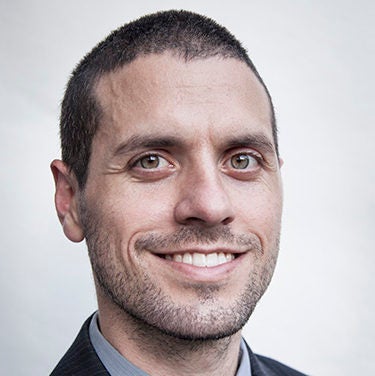Sorry for the delay.
So public health and epidemiology research are incredibly broad. It’s pretty much the study of disease and the determinants of health at the population level. That can range from things like trials of new diagnostics, pharm and non-pharmacologic therapeutics, or medical devices to things like studying the impact of pollution on asthma attacks or food deserts on diabetes. The possibilities are endless. A PhD isn’t necessarily required but I would recommend some advanced training to get a solid foundation to do rigorous work with sound methodology (and if you do something like an MPH or MS in clinical research during a fellowship, you can often get it funded)
My focus is ID, so that’s most of what I’m familiar with. Here’s some MDs doing public health research. just go to epi phD program websites and see what MD faculty are doing. don’t be afraid to reach out to a few and ask questions
David Boulware, MD MPH

med.umn.edu
He does very translational work ranging from bench research to large trials in a global health setting. One his areas of focus is improving diagnosis and treatment of cryptococcal meningitis and TB meningitis in resource limited settings. He’s recently been involved with trials looking into possible covid19 therapeutics.
Practices clinically.
Chandy John, MD MS
Chandy C. John, MD, MS
He also does a mix of laboratory and population level work research on pediatric cerebral malaria. Everything from immunologic factors to treatment.
Also practices clinically.
Alan Lifson, MD MPH

directory.sph.umn.edu
HIV treatment protocols and community interventions
Good read
Melissa Laska, PhD, RD (not an MD but since you mentioned nutrition)

directory.sph.umn.edu
Simon Rosser, PhD MPH (not an MD but because you mentioned LGBTQ)

directory.sph.umn.edu
Behavioral HIV prevention and interventions
Kamakshi Lakshminarayan, MBBS PhD MS

directory.sph.umn.edu
Colin West, MD PhD
Colin P. West, M.D., Ph.D., is a quantitative health sciences researcher at Mayo Clinic whose work focuses on physician well-being, evidence-based medicine and biostatistics, and medical education.

www.mayo.edu
west cp[Author] - Search Results - PubMed

pubmed.ncbi.nlm.nih.gov
Biostats PhD, has done large health sciences work, evidence based medicine, more recently been focused on physician well-being and medical education, and some covid stuff.
I think he still practices clinically.
example clinical translational topics

www.mayo.edu
Steven Goodman, MD MHS PhD

med.stanford.edu
Ana Baylin, MD DrPH

sph.umich.edu
nutritional epi
Eduardo Villamor, MD DrPH

sph.umich.edu
nutritional epi
Zhenhua Yang, MD PhD

sph.umich.edu
TB epi
Haitao Chu, MD PhD

directory.sph.umn.edu
biostats, trials, diagnostics, methodolgy
Pascal Geldsetzer, MD PhD
Pascal Geldsetzer is part of Stanford Profiles, official site for faculty, postdocs, students and staff information (Expertise, Bio, Research, Publications, and more). The site facilitates research and collaboration in academic endeavors.

profiles.stanford.edu
primary care and population health
Horacio Duarte, MD MS
health services research, pharmacology, cost effectiveness of therapeutics

directory.sph.umn.edu
Aaron Folsom, MD MPH

directory.sph.umn.edu
cardiovascular epi and preventive med
Madhukar Pai, MD PhD
Prof Madhukar Pai, MD, PhD, FCAHS Canada Research Chair in Translational Epidemiology & Global Health Associate Director, McGill International TB Centre Dept. of Epidemiology, Biostatistics & Occupational Health McGill University 1020 Pine Avenue West Montreal, Canada H3A 1A2 (514)...
www.mcgill.ca
Michael Mina MD PhD
(Former Bio) Dr. Michael Mina, MD, PhD was an Assistant Professor of Epidemiology at Harvard T. H. Chan School of Public Health and a core member of the Center for Communicable Disease Dynamics (CC…

ccdd.hsph.harvard.edu
Christopher Golden, PhD
nurtitional epi, climate change
Dominique Earland, MD PhD student in Epidemiology

med.umn.edu
You can skim this list of MSTP alumni to see who did Epi, thesis topic, and what they are currently doing. (4 epi., 1 health informatics, 1 environmental health)

med.umn.edu
Profiles on this page
sample thesis topics near bottom of page for Mayo Clinical and Translational Sci PhD
Learn more about the Clinical and Translational Science (CTS) track within the Ph.D. Program at Mayo Clinic Graduate School of Biomedical Science.

college.mayo.edu
see the following areas for Case MSTP, if you scroll through you’ll see mentors in clinical and translational science and epidemiology
The CWRU MSTP has a group of amazing mentors. Our faculty are often recognize for their outstanding mentorship, locally and nationally. Congratula...
case.edu
At the University of Michigan School of Public Health, more than 200 professors and research scientists teach tomorrow’s public health leaders and perform cutting-edge research that helps advance the field of public health. Many faculty members are leading experts in their fields who consult...

sph.umich.edu
quite a few MD PhD under courtesy faculty

med.stanford.edu


